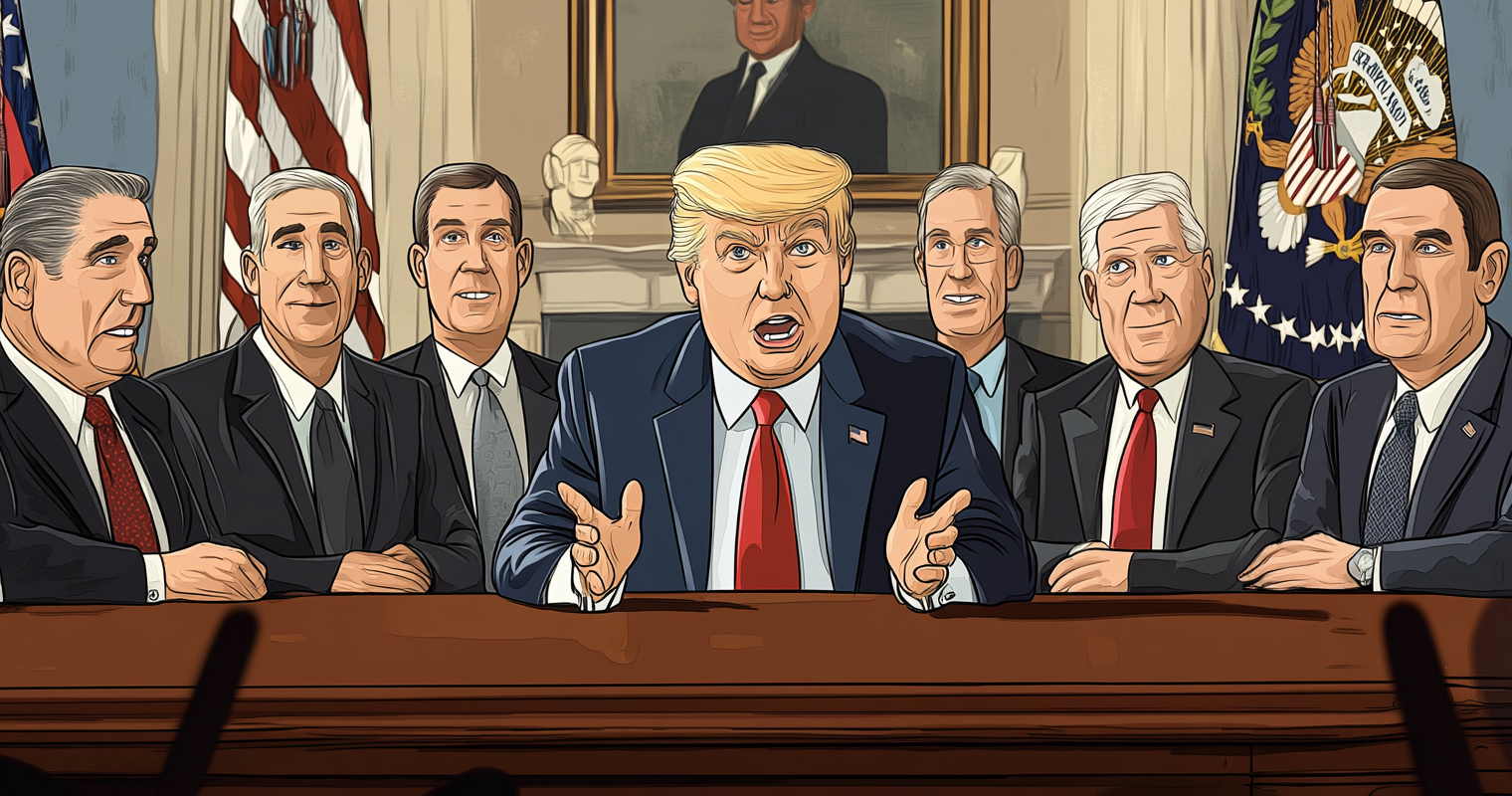Donald Trump isn’t finished nominating his presidential Cabinet — and some of his top candidates might have a tricky time getting confirmed, even by a Republican-controlled Senate. Still, Trump’s early picks already offer signs about how he might direct his federal government’s approach to artificial intelligence.
Duane Pozza, a former Federal Trade Commission assistant director in the first Trump administration who is now a partner at the law firm Wiley Rein, said the government’s approach to AI is at an “inflection point,” and Trump has big decisions to make about how much of Joe Biden’s AI legacy he wants to undo. “The next administration will decide whether to roll back any part of the executive order,” he said, referring to Biden’s sweeping executive order on AI from October 2023, “and how to best implement policies to support AI innovation for US global competition.”
Antitrust the process
Trump’s selection of Florida Rep. Matt Gaetz could also have implications for AI. Gaetz’s nomination has drawn intense bipartisan scrutiny over his professional inexperience and brash demeanor, and allegations of sexual misconduct and illegal drug use that were the subject of a House Ethics Committee investigation, the findings of which have not yet been released. If confirmed, Gaetz could carry out Trump’s prosecutorial whims by targeting the president’s enemies in Silicon Valley — over the years there have been many, including Meta’s Mark Zuckerberg and Amazon’s Jeff Bezos.
But the Justice Department is also one of two antitrust authorities in the United States alongside the Federal Trade Commission. And while we don’t know who Trump will pick to succeed Lina Khan as chair of the FTC — she might resign, but she can technically stay under a successor is confirmed — Gaetz, along with Vice President JD Vance, has signaled sympathies for Khan’s tough-on-tech outlook in the past and even suggested she should stay on under Trump.
Benjamin Sirota, a former Justice Department antitrust prosecutor and current partner at the law firm Kobre & Kim, said the lines between traditional Democratic and Republican stances in antitrust law have blurred. He expects Trump will usher in “a retrenchment from some of the most aggressive policies and priorities of the current regime, but not a wholesale retreat.”
“We could see Trump enforcers seek to rapidly resolve large, pending digital monopolization cases,” especially if they’re looking to cut costs, said Diana Moss, vice president at the Progressive Policy Institute, alluding to cases filed against Google and Amazon under Biden. While she said Trump’s antitrust chiefs may single out disfavored companies, she otherwise expects a return to more traditional methods of determining market power than Khan’s Neo-Brandeisian principles, which look beyond price increases toward broader standards of consumer harm.
With federal investigations into AI companies having started under Biden, it’s unclear whether Trump might target political enemies. One potential target is OpenAI, whose CEO, Sam Altman, is a consistent Democratic Party donor and whose relationship with Microsoft is already reportedly the subject of a federal antitrust investigation.
Keeping China at bay
Trump and Biden both have aggressive stances toward China, so there should be some continuity in litigating the ongoing trade war. The focus under Biden has been pouring funds into chip companies building manufacturing facilities in the United States while enacting export controls to limit China’s ability to get powerful US-made chips.
Hanna Dohmen, a research analyst at Georgetown University's Center for Security and Emerging Technology, expects the administration to “continue using the expansive international trade toolbox to restrict China's ability to buy, make, and access AI chips.”
“The Trump administration likely will not try to roll back the CHIPS and Science Act because there is bipartisan support for onshoring semiconductor manufacturing,” she added, noting that the administration is more likely to favor deregulation and tax credits in the future rather than additional CHIPS Act spending.
There are more unknowns than knowns
Plans for the second Trump administration are still coming together, but the proposed Cabinet is full of outsiders without deep track records on artificial intelligence. Former Rep. Lee Zeldin, Trump’s pick to helm the Environmental Protection Agency, said it’s his focus to “make the United States the artificial intelligence capital of the world,” likely through deregulatory efforts at a time when liberals and climate change activists are deeply concerned by the energy consumption of data servers needed for AI.
Brendan Carr, a Federal Communications Commission member who Trump has nominated to chair the bipartisan agency, has been particularly aggressive toward social media companies, which have long depended on artificial intelligence for content moderation efforts. And much of the government’s involvement with AI will fall under the jurisdiction of Pete Hegseth, a Fox News anchor nominated for defense secretary, and former Rep. Tulsi Gabbard, nominee for director of national intelligence, neither of whom have fleshed out their positions on AI.
But of course, the real influence behind Trump’s AI decision-making — at least while the two are still cozy — may be Elon Musk, who has been tapped to run something called the Department of Government Efficiency, aka DOGE, alongside businessman Vivek Ramaswamy, and has Trump’s ear.
Musk has been deeply critical of government regulation over the years, frequently feuding with agencies including the Securities and Exchange Committee and the FTC. And while Musk has expressed public concerns about the risks of AI, once calling for a pause on AI development, he has also built his own AI company called xAI that developed the chatbot Grok. Musk has supported California’s proposed AI safety bill but also sued to block the state’s deepfake law. If Musk becomes an influential member of Trump’s team, even outside of a formal Cabinet post, the government’s AI policy may be, well, whatever Elon wants it to be.